নিরবধি
‘TILL TIME STAND STILL’ BY ANUSHKA RAJENDRANSarkar Protick’s exhibition on view ‘নিরবধি’ which loosely translates to ‘Till Time Stands Still’, gathers the sensorial temporalities of stillness that permeate political and personal histories that he refers to in the works on view, carrying us into distended futures collapsing upon themselves in the everyday.
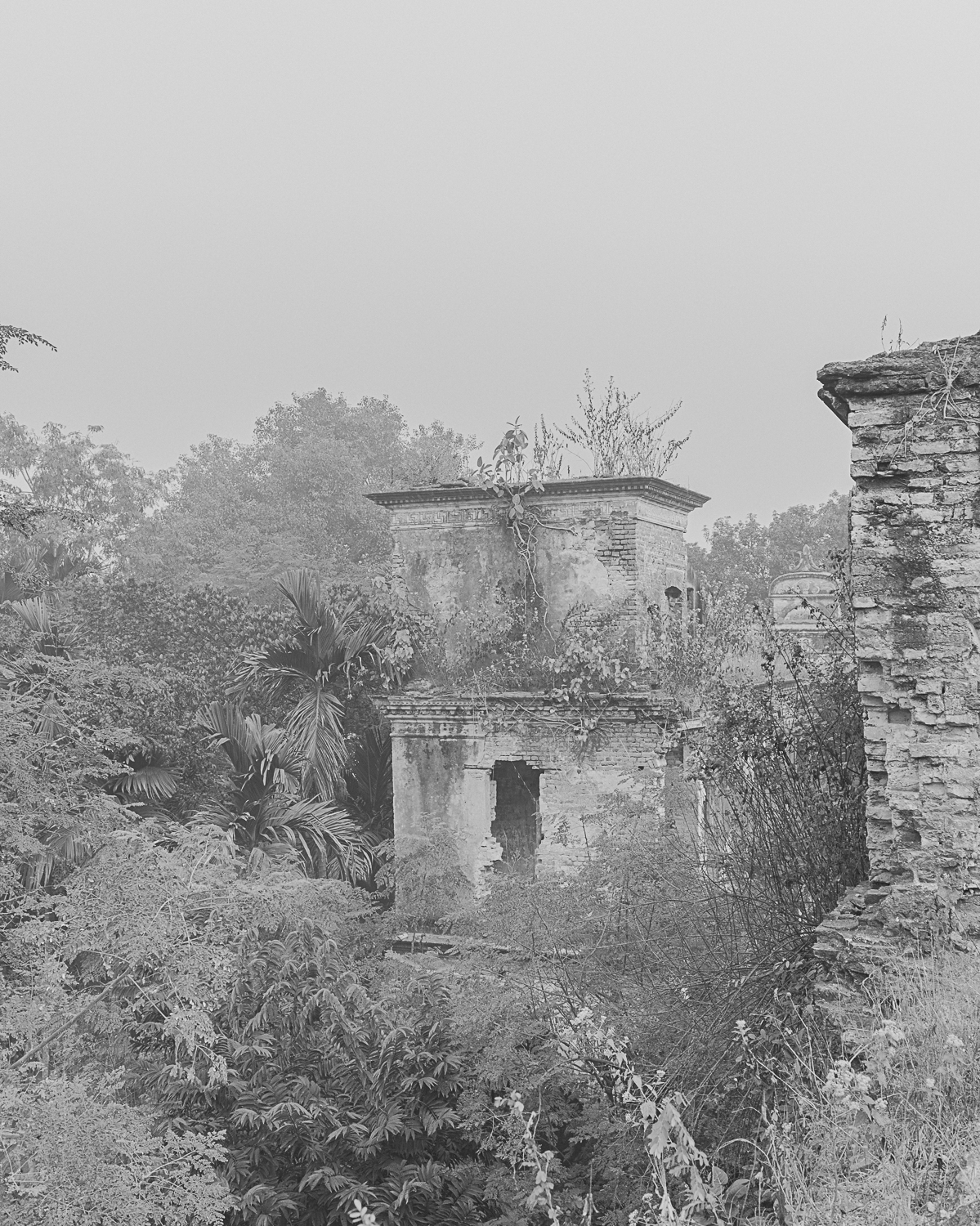


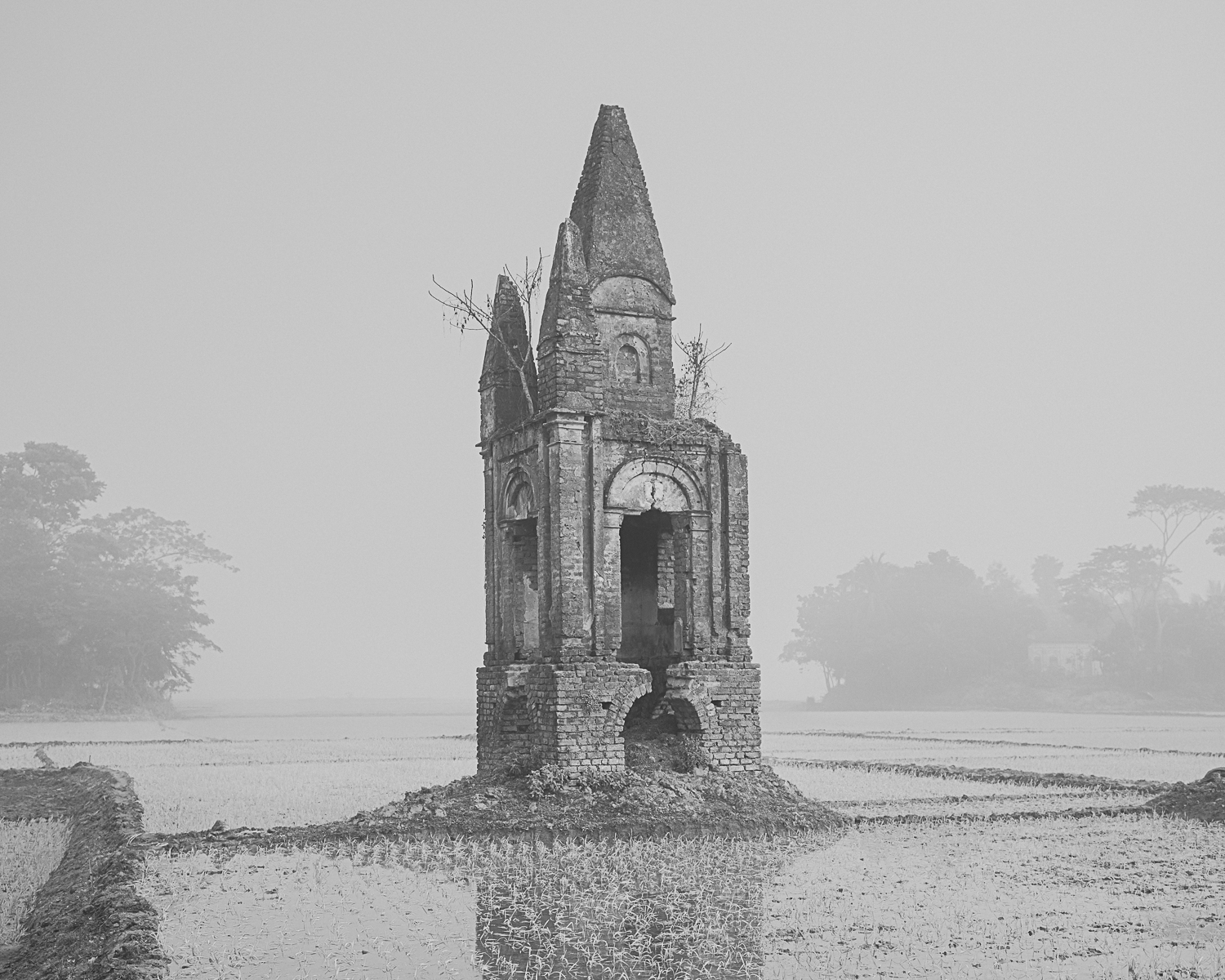
JIRNO, DELHI, 2022.
In the making since 2016, in Jirno (Ruins) we encounter the material memory of the Partition of Bengal in 1947, that presents in his photographs as derelict, uncanny, dream-like formations reclaimed by the natural world. These spaces, abandoned to suspended time, are not archeologies that locate amnesia, but through them the lingering temporality of loss and longing receives manifestation—the impossibility of surpassing the moment of the traumatic split even as continued social and political crises of the subsequent decades threaten to bury it. The time-space matrix contained by Jirno holds in all its fragility the even more layered complexities of Partition memories that sustain: the divisive policies of the British Empire which continue to inform communal discord and suspicion towards identities that were forcibly othered in the national imagination; the complicity of the feudal ruling class on both sides of historically porous and precarious regional configurations, reverberating in the Victorian-inspired architecture; and exodus towards a state of perpetual, intergenerational exile.
Mr. and Mrs. Das inscribes the altered temporal domain occupied by an elderly couple, who happen to be Protick’s grandparents, in the twilight of their lives, confined by age, purpose and their own bodies within the walls of an old apartment from the 1960s, their chosen home in Dhaka after decades of work and raising their family.
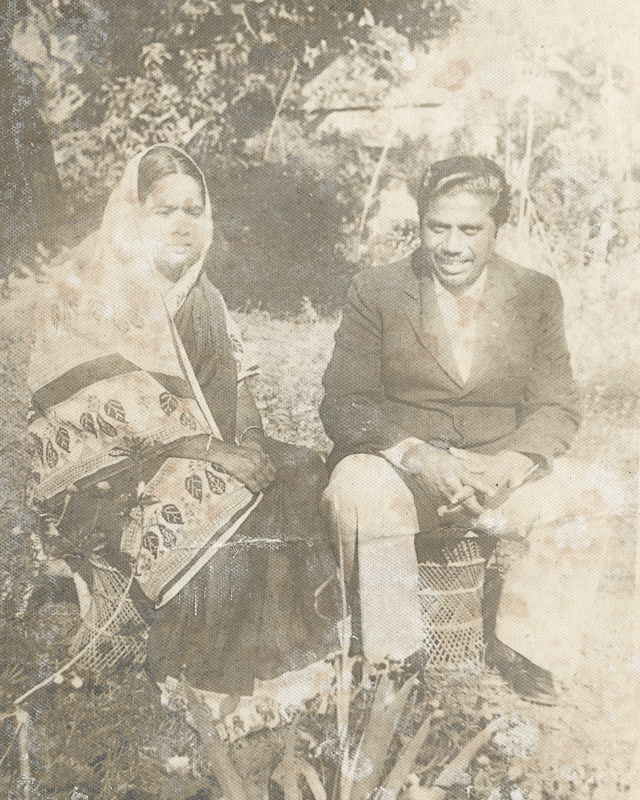

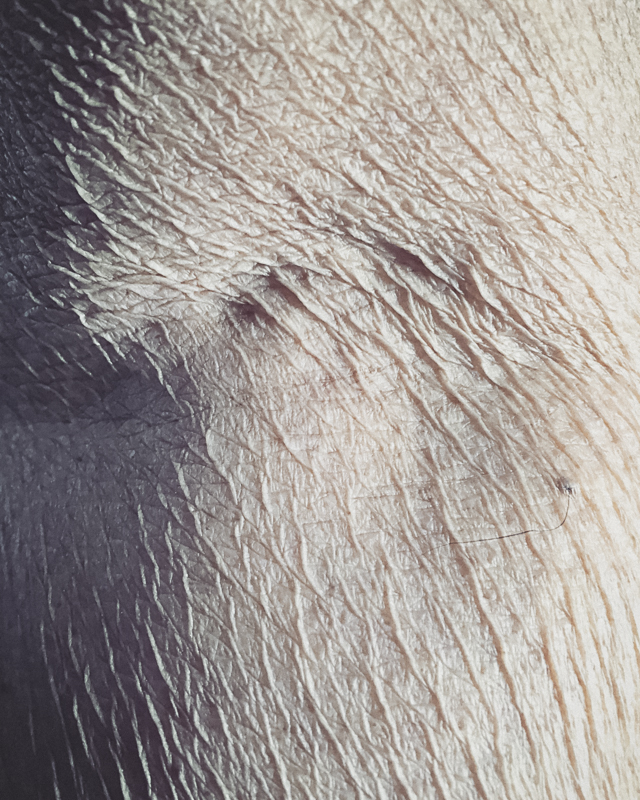

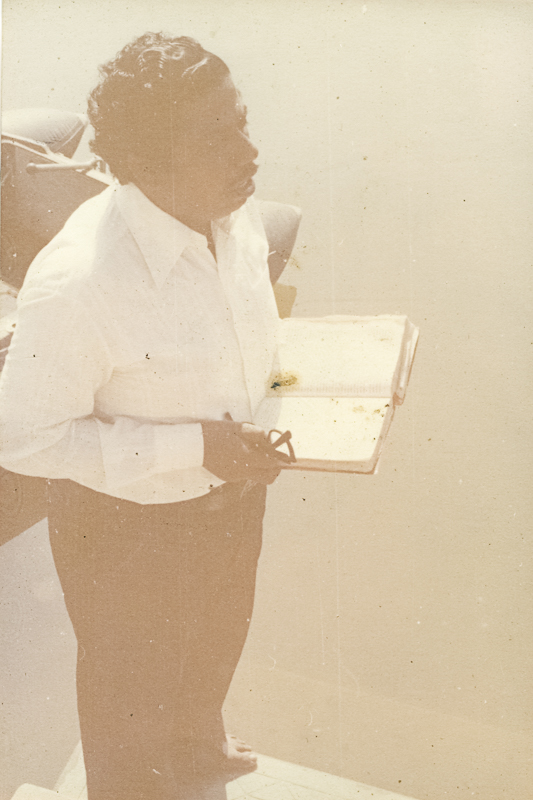
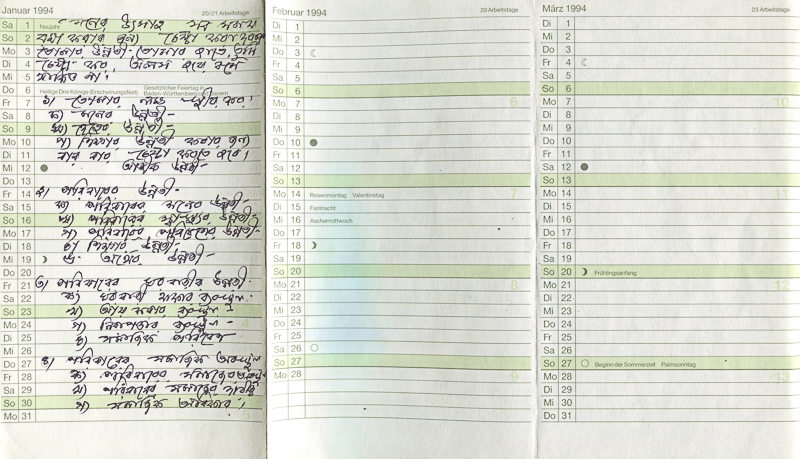
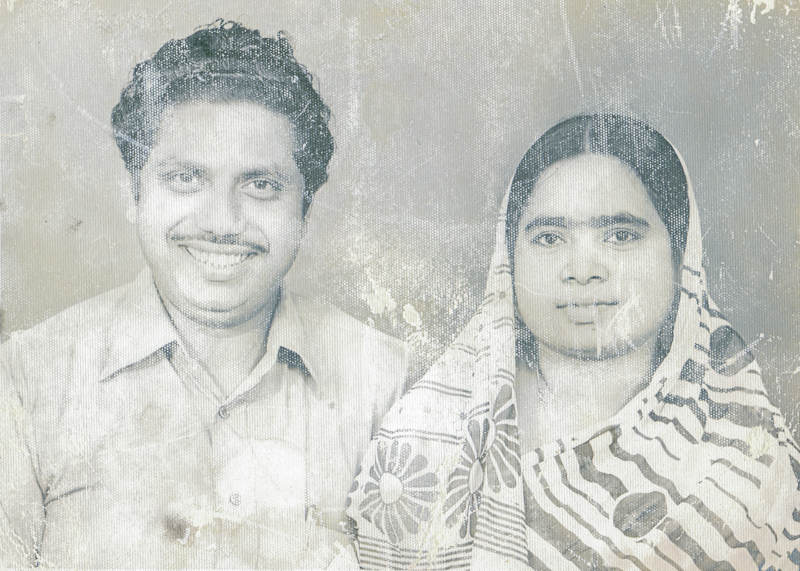

MR. & MRS. DAS, DELHI, 2022.
Unable to match the frenzied rhythms of a erstwhile life spent in service to the Baptist Church, and with most of their children living in far away geographies, their isolation receives respite in transient moments of tenderness and contemplation witnessed by their grandson on his visits and by each corner of their home that had become the entirety of the rest of their lives. The psychological time of a different form of exile appears in another tenor here, and is accompanied by the familial archives of the couple who despite always living in different parts of present-day Bangladesh their whole lives, have assumed three different nationalities—that of British India, Pakistan and Bangladesh.
RAŠMI, DELHI, 2022.
The fragility of light, space and time in Protick’s works hurtle into overwhelming rapidity of contemporary urban experiences in Rashmi as time collapses into a dizzying continuum. Constituted from images captured by Protick daily of his surroundings and encounters from his travels—defying geo-political anchors—for a period of three years, the moving-image work marks the existential anxieties, sensorial excess and continued accelerationism as we drown in the dregs of civilizational ambition. The cacophonous ticking of the visual and sonic cues in this work instils in us the sense of glowing embers just moments before they recede into absolute stillness, darkness and silence. Just as ashes speak of the annihilatory glory and fury they were once capable of, we are left with after-images that carry the imprints of mortality and transience.
— Anushka Rajendran, 2022